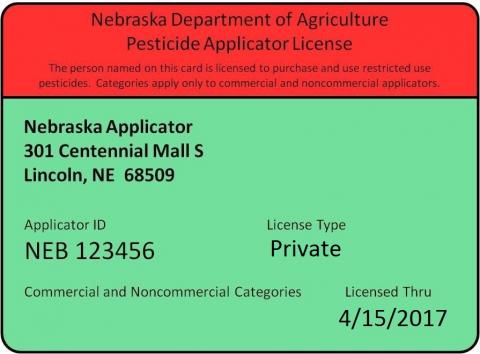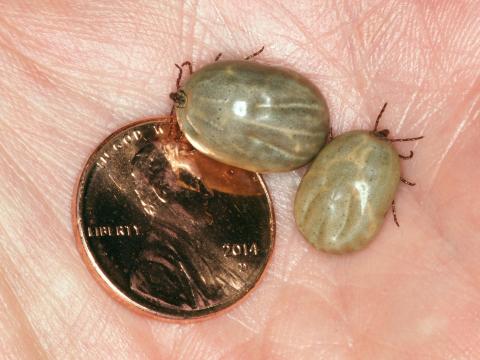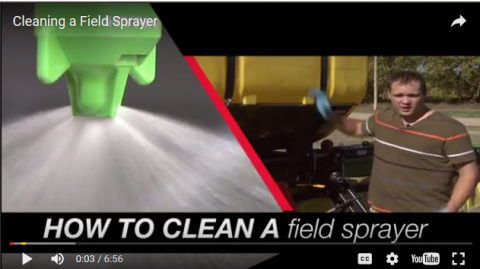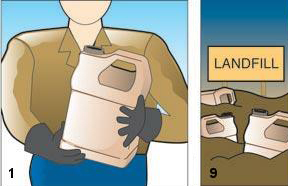Herbicide Resistance, Safety Are Key Topics in Private Pesticide Applicator Training
December 12, 2016
Private pesticide applicators holding licenses that expire in 2017, as well as anyone seeking first-time private applicator certification, can contact their local Nebraska Extension office for pesticide safety education training sessions. About 200 statewide sessions will be held January through April.
Tick Prevention Worth the Effort
August 2, 2016
It's tick season in Nebraska and time to create a barrier between you and these disease-transmitting pests. See tips for avoiding their bite and what to do if you find one on your body. Also see photos to aid in identification.
Cleaning Pesticide Application Equipment
July 6, 2016
Careless cleanup of pesticide application equipment is a main cause of equipment failure or malfunction. Always clean application equipment immediately after use, as dried pesticides are harder to remove, and at a location where any spilled rinsate won’t contaminate water supplies or other crops. This article offers recommendations for cleaning and storing application equipment and how to stay safe when doing it.
Who Should Provide Worker Protection Training?
April 12, 2016
Who is responsible for training scouts, applicators, etc. if they are provided by a co-op, seed dealer, or chemical dealer?
Pesticide Container Recycling Available at 24 Sites in 2016
April 6, 2016
Nebraska’s voluntary pesticide container recycling program has reason to shout. Now in its 25th year, the program has recycled more than 2.27 million pounds of pesticide containers since 1991.





